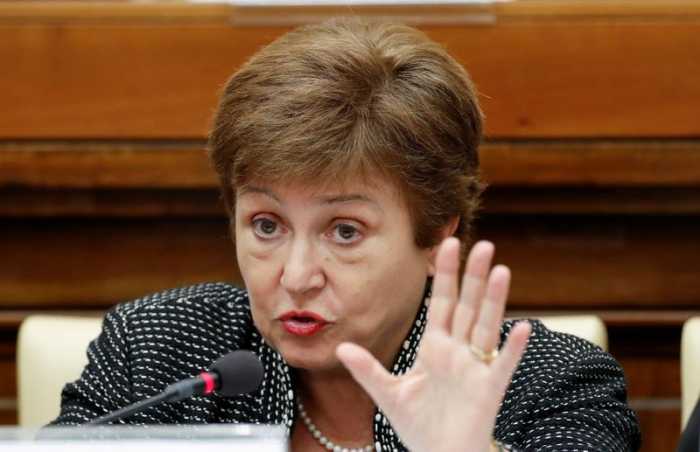
IMF Managing Director Kristalina Georgieva said a six-month extension of the Group of 20 major economies’ freeze in official bilateral payments would help low-income countries hammered by the COVID-19 pandemic, but more urgent action was needed.
“We are buying some time, but we have to face reality that there are much more decisive actions ahead of us,” she told an online event hosted by the Group of Thirty former policymakers and academics, urging creditors and countries facing debt distress to start restructuring debts without delay.
“Doing too little too late is costly to debtors, costly also to creditors,” she said, warning that global debt levels would reach 100% of gross domestic product in 2021, and the negative impact of sovereign defaults could quickly spread. She said creditors should adopt contractual provisions to minimize economic disruption, increase transparency and endorse a common framework agreed in principle by the G20 last week.
Georgieva’s remarks come amid growing concern about sharp increases in debt levels, especially among low- and middle-income countries hard hit by the new coronavirus, a drop in tourism and in some cases, lower oil prices.
The G20 Debt Service Suspension Initiative has helped 44 countries defer $5 billion to spend on mitigating the COVID-19 crisis, but its efficacy has been limited by the absence of private creditors and China’s failure to include all state-owned institutions.
Many poorer countries have been reluctant to ask for a freeze in government bond payments, worried that doing so could harm their ability to borrow money in the future.
The G30 group, which includes former U.S. Treasury Secretary Larry Summers, last week urged the IMF to boost lending, tap its substantial gold reserves, and issue more of its Special Drawing Rights currency, a move akin to a central bank printing money that has been blocked by the United States.
Summers told the event the G20 debt relief initiative was “a squirt gun meeting a massive conflagration,” and more sweeping and coordinated action was needed by the world’s rich nations.
“The global response has been a very small fraction of the actions proposed and advanced” during the global financial crisis in 2008-2009, he said. “History teaches us that there are countless errors of being too late for every error of being too early, and we are doing next to nothing internationally.”

